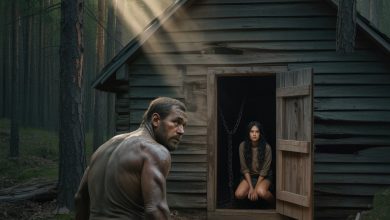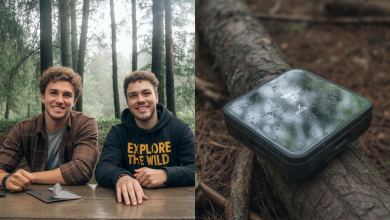‘I Am in Danger’: How Abbie Chatfield’s Comments on Charlie Kirk Unleashed a Global Firestorm of Death Threats
She sleeps with her dog’s crate wedged against her bedroom door. She has told her neighbors that if they hear screaming, they should call the police immediately. She is living in a state of “constant fear and constant danger.” This is not the life of a fugitive; it is the new, terrifying reality for Abbie Chatfield, a prominent Australian media personality who has become the latest international flashpoint in the volatile aftermath of Charlie Kirk’s assassination. Her story is a chilling case study in how a controversial opinion can ignite a global firestorm, unleashing a torrent of death threats that transform online outrage into real-world terror.
The crisis began with a video. In the hours following the news of Kirk’s murder in Utah, Chatfield, a provocative and unfiltered podcaster, took to her Instagram to share her thoughts. Consciously referencing the recent firing of MSNBC analyst Matthew Dowd, she declared, “I’m not going to be like those people that got fired. But I’m just here to say that I don’t feel a lot of sadness about what happened to Charlie Kirk. I don’t think it’s a good thing, but I’m not going to pretend to be sad.” She went on to explain her reasoning, stating that she “hated” Kirk and believed his platform was “so incredibly hateful.”

The comments, delivered with a casual indifference, were a spark dropped into a digital powder keg. The backlash was instantaneous and global. Clips of her statement went viral, and a wave of furious condemnation crashed down upon her. She was labeled “heartless,” “vile,” and “disgusting.” The outrage quickly escalated beyond mere criticism. Conservative Australian politician Gerard Rennick launched a scathing personal attack, calling her “one of the vilest human beings in Australia.”
But what followed was far more sinister than a political feud. A coordinated online campaign began to target Chatfield, and the backlash morphed into a direct and credible threat to her safety. On Friday, she released a lengthy, desperate statement revealing the terrifying consequences of her video. “I am in fear,” she wrote. “I’ve received numerous death threats with my address in them… I have had my safety stripped from me.”

Her account of her new daily life is the stuff of nightmares. She described the hundreds of abusive messages she receives every day, including “fantasies of violence and rape.” She detailed her new security precautions, from barricading her bedroom door to the grim instructions she has given her neighbors. Her story is a raw and unfiltered look at the price of expressing a controversial opinion in a hyper-polarized world. It demonstrates a dangerous and growing trend where the response to speech is not more speech, but the threat of violence, a tactic designed to terrorize and to silence.
The Chatfield firestorm is a stark reminder of the global nature of modern outrage. A tragedy in Utah has become a reign of terror for a media figure in Australia, illustrating how geographic borders are meaningless in the digital age. It also highlights an emerging pattern. Just days earlier, American analyst Matthew Dowd lost his job for similar, albeit more academic, commentary. Another left-wing influencer, Hannah Ferguson, was also reportedly forced to make her social media private after being deluged with death threats for her own critical posts about Kirk.

This is the new reality of public discourse. It’s a world where a comment, a tweet, or a video can lead to a coordinated campaign of harassment that follows you from the digital world into your own home. Chatfield’s experience has become a powerful, cautionary tale. It raises profound and uncomfortable questions for everyone. Where is the line between holding a public figure accountable for their words and subjecting them to a campaign of terror? And what happens to the ideal of open discourse when the price for expressing an unpopular opinion is a life lived in constant fear? For Abbie Chatfield, these are no longer theoretical questions. They are the terrifying reality she now faces every time she closes her eyes.



